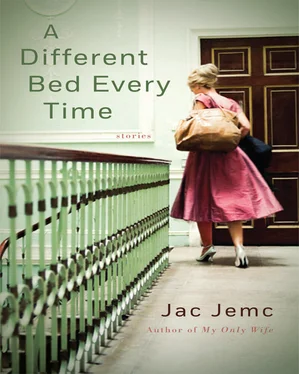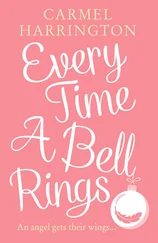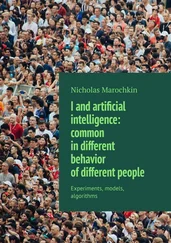48. He was told to bury them where he could.
49. So many jaws pulled open by hook & key punch.
50. The general dozed while his buttons stayed alert.
51. The tentacles of his power strained wily & long.
52. Surely the planets that orbited his brain would align soon with an answer.
53. The tyranny peered over the frames of his low-slung spectacles.
54. At the dump, the pure volume of discarded motors, mechanics, coils, made my mind twist like a paper bag.
55. It never took long for the trash to gray, for the fluorescence to grow liquid brown.
56. I recorded bits of the long drawn speeches to spout back to him later.
57. He had the job of telling mothers to sit down, please turn off the radio.
58. The arthritis curled their fingers like fans of scorpion tails.
59. Each television broadcast colorful disasters.
60. Then even a kaleidoscope was too logical for what I saw & I could think of only the words “scattershot.”
61. The stories he had to tell each evening to purge himself in that scrum of an attic apartment.
62. The difference between inside & out had always been tenuous for me.
63. The glare off his glasses had been mirror-slapping me for months.
64. And then that nothing.
65. His dark shadow against the window at night when I thought he was beside me.
66. A couple hours later, the bars on the windows striped his face against the pillow & I wondered how I was back here again.
67. Lately I’d been seeing even the narrowest things in panorama.
68. That was what it was like to stay alive then.
69. Those were the things I saw.
70. That was the way I moved.
The story begins realistically, with bread and wood and yarns spun.
Though hungry, the elders feed the children one fig, one filbert apiece.
After the children are reined in and sleeping under wool, the parents speak of what to do once hunger has bruised even their care for each other.
They’d been frugal, Mother argued with Father. They pulled spider webs down and packed them along the cracks in the wall for insulation. What more of a gesture could be made?
And despite all, end still stretched for end.
The children woke in the night and heard their parents come to a decision.
They knew fear when they met each other’s glares; but home was not yet a place that could be left.
They knew they only needed to sleep through the night to wake up again.
So into an unlulled sleep they went, willfully hopeful.
They woke to their parents’ lifting arms. Their expressions appeared stern, but behind their mother’s eyes they saw that gossamer love they wanted so badly to prevail. In their father’s brow they saw the prayer that this was the right decision.
And into the forest the children were driven by their parents’ resignation, by the wet spring wind, by the snagging branches of the black hickory and alpine ash.
Their wool trousers blistered and their skin grew loose. The loaves of bread they carried against their hips left a trail of crumbs behind them, though they knew they would never return.
The steeples and spires and minarets of their fantasies fell through to the gutters and sewers of marshlands, the trenches of nature.
And wading through all of this circumstance, the children made this rhyme about the past:
Roll it over gently .
Twist it on the spot .
Pull it out and pull it through .
Tie it in a knot .
We is stiff and rare with the making of sense. Impressions debate the monotony. We doesn’t know a needle from a conjunction. We helps the bulbs of language sprout. We learns the length of a month and the next month, it already feel short. We has sexy eyes that dawn open and the lessons murmur in keys and closets, and we reads your pale vocabulary like a limit. We eat tiny planes with our ears and telephone the world with our loud voices to notify nature of our safety. We leaves and returns, having purchased some terrible mistakes from our intricately creased elders. We lurks slightly ominous in our white van with our oatmeal and greetings and cooperation. We opens ourselves back up to the littler lives possible. The dark is waiting, relaxing, leaning into us, arriving.
We is speaking and instancing. We opens the windows and lets the cold dedicate itself to us. The helium delays and we find a god with two bodies that swims and fishes itself through us. Geniuses is waving at us and we presses and kicks and burns and deadpans back at them. We soaks in our shame, even alone in the woodland at night. We culls our fears in promises. We leaves the evening undealt with when we can. Every day we rushes home to see what is causing the sunlight to smoke and jimmy. We is distracted by attractions.
We rests and thins ourselves out. Can we asks you something? Your thin bodies pathing circles inside us, does they ever feels like practical jokes? Can you feels the bright muscles concentrate and scatter? Can you hears the crows caw the morning open? We writes poetry the way pleasure tells lies.
Millie is happy here in the forest, saying “Beware,” again and again. She has wept smoothly down long trails and squeezed herself into skirts of certainty and now I wouldn’t be surprised if she never wants to leave. She comes up behind hikers and campers and the wayward youth whispering: “The ground shall tell all,” and “The eternal lies beside you and me.”
Millie grew up happy, but a switch was flipped somewhere once and then flipped back again later. What I’m trying to say is that she has known the reverse — bare and farther away from the present, still. She learned, “Murder finds time in a minute one doesn’t even know is there,” and also, “A minute is not long enough to ask all the questions the yellow rooms later will.”
Young opinions and decisions happened everywhere and the peaceful spinning wheel of memory was catching it all. Millie would note that the man disappeared and then the next minute he would still be gone. Poems and apartments were left behind. The subway platform filled with sparrows. Everywhere. Millie thought, “I was almost a fool,” and “I am swollen with caution now.”
That night, Millie only got as far as the buried trains would carry her. She had heard of a land where trees grew tallest on the skyline, where the twisting days sounded only slightly, like bird calls and rustling leaves. She would find that place soon, but for now she had another strangled night to lay down with the city. The hot concrete beneath her fought the voices that passed unawares. She dreamed of nature beyond the eye of the city and of the dead plants from the hallway of her grandmother’s house.
When the dew woke her, heavy on her skin, Millie found her way to her feet and her feet found her walking the questionable distance between city and country. This area looked something like a road with a small gravel shoulder. Millie was unable to see much more because she was remembering from where she’d come and imagining what was ahead. Before she knew it, a truck carrying a man traveling the world around with a load at his back had pulled up and opened his passenger door. “You’re not a foolish missionary are you?” and “Don’t you know there’s a certain finger that works better than that one for hitchhiking?”
When they had traveled only a very short distance, Millie asked to be let out. The driver refrained from asking questions. Millie climbed out of the cab and down into the field beside them. The driver didn’t wait to see if she got where she was going; he had work to do, including steering himself away from this point. Millie aimed herself at the woods beyond the field and her focus made the distance seem short. She hummed and whistled while she made her way to the trees.
Читать дальше












